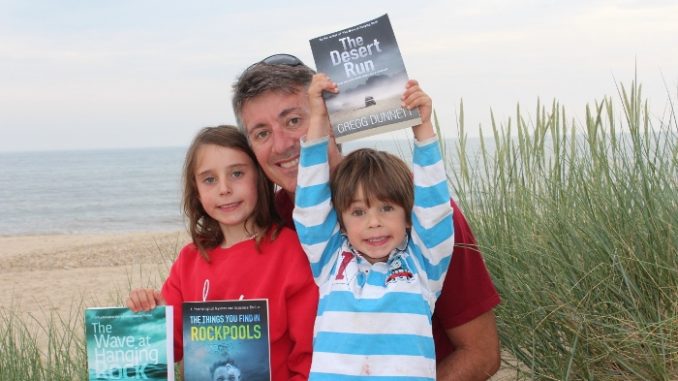
Interview: WSUK
Pics: Gregg Dunnett
Having made the successful transition from gonzo windsurfing mag journalist (his description not ours) to applauded novelist Gregg Dunnett is just about set to drop his fourth work of fiction. If you’ve had opportunity to read any of his previous books then you’ll note the ‘surfy’ theme running through all. That and dark undertones. We caught up with the self-styled surf noir author to find out more.
Firstly congrats on The Things you find in Rockpools, in our opinion your best novel to date. How do you come up with your plot lines and topics?
Thank you! I enjoyed writing that one too. Strange how easy it was to write from the perspective of an incredibly geeky 11-year-old, almost like I had experienced it personally…
I don’t know if it’s the right way, but I’ve plotted all my novels in the same way. I start with an idea that interests me. So with my first book, The Wave at Hanging Rock, it was: What if a group of surfers over-developed the whole localism thing. How far might they go? What would the impact be? And then you work out other things around this idea, to make it plausible. In this case it really had to have been teenagers, because they needed an element of immaturity. And they had to be isolated in some way. And they had to do something (they beat a visiting surfer to death with rocks). So already you’ve got half the story. Then it’s just a case of filling in the missing pieces as you go and trying to bring the story to a logical, satisfying conclusion.
There’re quite menacing, dark undertones running through your novels. Is this set to continue, or maybe even become darker still?
To be honest it wasn’t always quite so dark. My first serious attempt to write was a story about an ageing surf photographer at the time of the changeover from film to digital cameras. I wrote 120,000 words of it, that’s like a book and a half. But I later realised there was no plot. There were no murders, no mysteries. Nothing really happened. I learnt from the experience that thriller novels are about murder, or deceit, or menace, otherwise it’s like reading about someone getting up and going surfing, and having a few beers and going to bed again (which is pretty much what that first book was like). So yes, the darkness is definitely set to continue.
Surfing, and associated watersports (note: Greg features SUP in his second book The Desert Run) are perceived to be ‘sunny’ pastimes. What’s the recipe for melding noir and something more about sand, sea and tropical backdrops?
I think that idea of these sports being sunny is part of the mainstream media’s overly narrow way of portraying any sport that isn’t mainstream. Surfers are represented as kinda stupid (the blond, dumb stereotype), or adrenaline junky big wave dudes, or pseudo-spiritual. They’re almost never shown as normal people. But the reality of these sports is quite different, as we all know from doing them. You get a much wider range of characters and personalities taking part. So I just try to reflect that. In a way I have ordinary people, some of whom happen to be surfers, and some of whom happen to be killers, in the way that some people in mystery/suspense books are. It was never a particularly deliberate move either. Because I’ve done these sports my whole life when I sit down to write, that’s what comes out…
An accomplished windsurfer in your own right are we likely to see sail powered craft crop up in any of your works?
I’d like to try it one day. But I do think windsurfing is a hard subject to write a mainstream novel about for the reasons above. The public perception of our sport is even more removed from the reality than with surfing. It gives you a real problem. If you write it to fit the media image, it would feel completely wrong to windsurfers, if you wrote to fit the reality, it’s going to seem odd to non-windsurfing readers (and they’re by far the majority!). But if the right idea comes along I’d definitely like to give it a go. I think the best novels are where you feel you’re learning something, or getting a window into a new world as you read, and a window into windsurfing could be really interesting. It’s just hard to do well.
Describing surfing, windsurfing and SUP in a non-cheesy way is hard indeed – especially when aiming your writing at non-water going types, yet you seemed to have nailed it. Any secrets to this success?
Thank you! Like I said my first attempt at a novel was mostly surf scenes, so I guess I had a bit of practice there! I think what I learnt was it’s important in any ‘action’ scene to have some element of the story playing out, alongside the literal description of whatever is going on. So for example, in the main surf scene in ‘The Wave’, the protagonist goes into the water at this new, secret break he and his friends have discovered, and he’s scared because they’re the biggest waves he’s ever faced. But he’s also distracted because he’s full of hatred for his best friend, who has been sleeping with the girl he liked. This distraction nearly gets him drowned, but he overcomes that, and starts catching the best waves he’s ever ridden – and his friend does too – and they both realise that their friendship is more important than any girl. Actually that does sound pretty cheesy the way I’ve just put it, but hopefully it shows how the surf scene isn’t just there for filling – it’s part of the story, it moves things along.
By your own admission it took a while to knock your first book out yet you seem to be storming ahead now. How hard is to keep coming up with something fresh? Ever struggle for inspiration?
I’ve wanted to write books for as long as I can remember, so I guess that first one took 42 years! But yes, once the first is out of the way it definitely gets easier. You learn the tricks to speed things up.
There’s no struggle for inspiration as yet, but I do have to choose the ideas carefully. It takes me at least six months to write a book, so I need an idea that’s going to sustain my interest for that time, and get me through the inevitable and painful rewriting stage.
Do you have plans for further novels already in the bag? If so, how many plot lines do you have firmed up?
Well I have a new one coming out this summer called ‘The Girl on the Burning Boat’. I don’t have a plan yet for what to write after that. I prefer to focus on the current project until it’s finished. If I allow myself to think too much about what’s next, there’s a danger of that taking over and the current work never gets finished! It’ll definitely have many of the same themes though – the coast or the oceans, adventure. That’s what I like to read, and therefore what I like to write.
Think you can become the next Kem Nunn (note: Kem Nunn is a Californian author of dark surf fiction as well as countless TV/movie screenplays including Miami Vice and Kathryn Bigelow’s original Point Break)?
Don’t tell anyone, but that’s the dream!
Any plans to get your stories visualised and turned into motion pictures?
That would be awesome too. Do you get many Hollywood producers reading this? If so my email is [email protected]. I’m open to pretty much any offer except Harvey Weinstein.
For many years you worked as staff writer for Boards Magazine. Ever miss those days of test trips and creating entertaining articles with your own unique twist?
When I worked for Boards I spent two to three months abroad every year on the test trips, and outside of that I could sail whenever it was windy because it was work. Now I’m older with a young family, it’s hard to put in words just how much I miss that! I guess you just have to try to enjoy each stage of your life as you live it. Or try to.
Would you like to get back into this kind of thing again or is being an author where it’s now at?
I’d love to. I just need a babysitter for two months! No, the reality is I’ve worked hard for a few years now to build momentum as an author and I’m going to keep at that for a while to see where it takes me. But the great thing about writing is you can do it anywhere. So the loose plan is to spend a few years somewhere hotter and with better waves quite soon. Kind of a family adventure. It’s not exactly the same as my Boards days, but it’s a way of getting back to what I love to do, to travel and explore and to get in the water every day.
That said, if a magazine ran test trips open to guests like Boards did back in the day, I’d be the first to sign up (hint).
What’s the biggest tip you could give to anyone thinking of either getting into niche journalism or writing books?
I thought when I quit Boards that it was a really tough time to be a writer, with the internet making a lot of what magazines offered redundant. But actually it’s brought a lot of new opportunities (which new writer/entrepreneurs like you guys are exploiting). So I guess the ‘secret’ is to pour everything you’ve got into what you’re creating, and build an audience of people who enjoy what you do. Once you’ve got that there are all sorts of ways to monetize it enough that you can keep doing it.
And what about time to get afloat? We know you’re hands are full with a young family but are you still finding time for windy/wavey shenanigans?
Those young families they do mess things up don’t they? I still windsurf almost whenever it’s windy, unless I’m on childcare duties. I don’t surf so much because Bournemouth (where we live) is pretty bad for surfing. But when I do get in the water I probably appreciate it more than when I was younger and could do it all the time. I now know how special those moments are, and I’m really looking forward to getting the kids involved as they get a little older.
Any goals left to achieve as far as windsurfing goes, if so what?
My brother and I (he of Windsurf-Round-Britain & Round-Europe fame) made two attempts to sail around the Isle of Wight on longboards, but both times we failed. To be honest he was holding me back. So there’s that. Oh and Baja. I’ve got this thing. If I ever manage to write a proper bestseller and get rich, I’m taking the whole family to Baja, I’ll make them camp on the point there for a month while I ride perfect waves every day, and play guitar and drink Coronas every night. It’s going to happen. It’s going to be awesome.
What’s your opinion of the windsurfing industry as it stands in 2018?
To be honest I don’t know. My focus is on the kids and the writing. That said, Avon Beach in Dorset (where I sail) still has a pretty healthy scene.
Is it better or worse compared to when you working in it? What would you change, if anything?
Again I don’t really know. But I’d say it’s knocked along OK for a number of years now. I guess it’s easy for me to be relaxed about the industry side of things these days, because my living is no longer tied up with it. It’s pretty clear windsurfing isn’t going to boom again any time soon, but it isn’t going to go away either. If it’s destined to be a small niche sport, then that’s OK with me.
Are you still part of the organisational team for The Avon Beach Windsurfing Fest? If so, what’s your role?
I think I got fired after my attempt at writing a funny article about it! Genuinely there’s not a lot I can add, the guys involved are all way more competent than me at organising, and running an event etc… And they’re so keen! I’m also kind of busy with the writing (it really does swallow up the hours). But mostly I just got fired.
Any opinion on windsurfing comps – we know you’ve entered a few in the past?
I’ve never been very competitive. I once rode a lucky windshift and got to the windward mark first in a race. I panicked, dropped the rig and then apologised to the rightful leaders as they sailed past a few minutes later.
I’m now getting old as well. My ankle is knackered from ten years crashing trying to learn to back loop. So I think it’s time for me to formally give up on my dream of becoming world champion. But I do want to get more involved with the kind of experiential windsurfing events – like the Defi wind in France, and there’s others like that. I think there’s still a lot to do.
Final thoughts on windsurfing and writing in general?
I’m absolutely certain that the experiences I’ve had windsurfing, and the places it’s taken me, have had a huge influence on my life and who I am, and I’m incredibly grateful for that. I also think windsurfing has helped give me my little bit of success as an author. Windsurfing teaches you to fail and try again, which definitely helps with writing (I think it helps in life generally). It also makes you different, and somehow authentic. And people are happy to buy into those qualities. I don’t think I’d be me if I couldn’t windsurf, and couldn’t write. So I’m pretty happy with both!
Thanks and praise?
Thank you so much for the opportunity to be interviewed – and can I also say how pleased I am to see a new windsurfing magazine on the scene. I think it’s fantastic what you guys are doing and I hope it goes from strength to strength. (Thanks Gregg! – Ed)
And if you’ve room for a quick plug. Could you say that if people are interested in finding out more about the books, they can get a free copy of my second book from the website www.greggdunnett.co.uk Thanks!

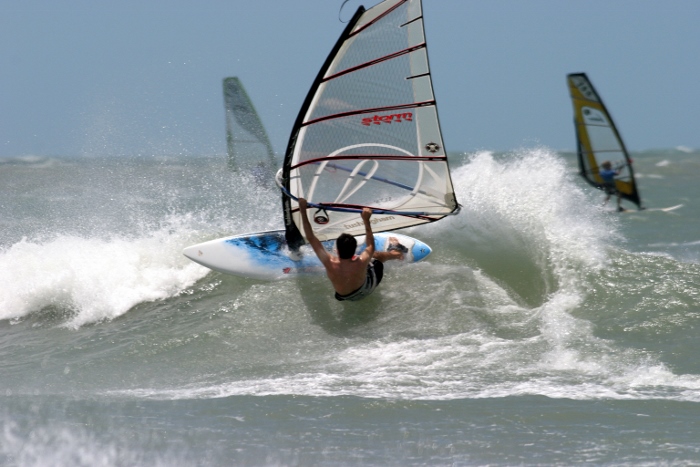
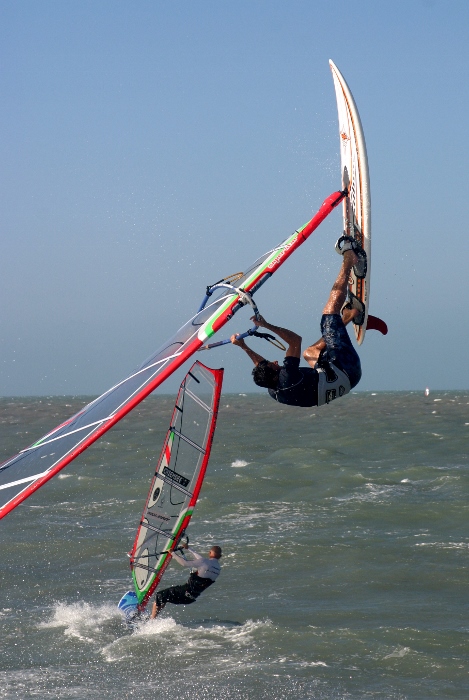
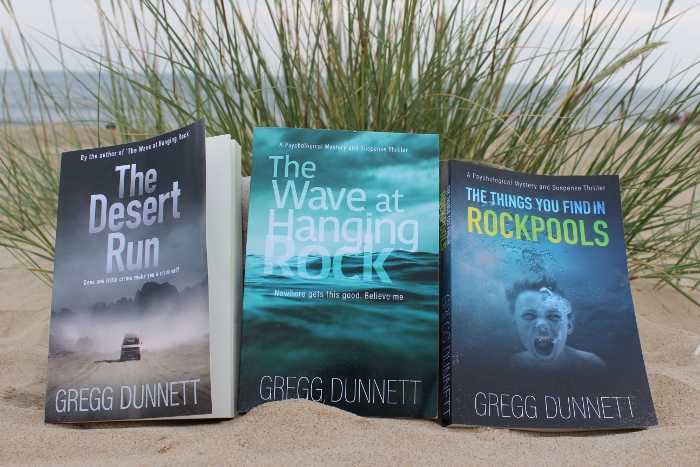
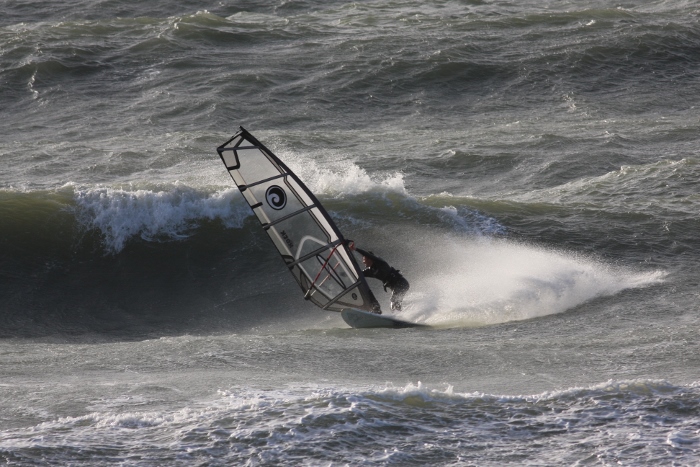
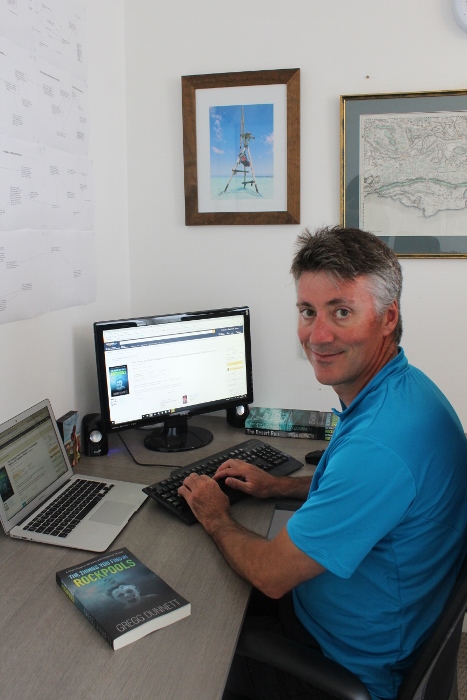
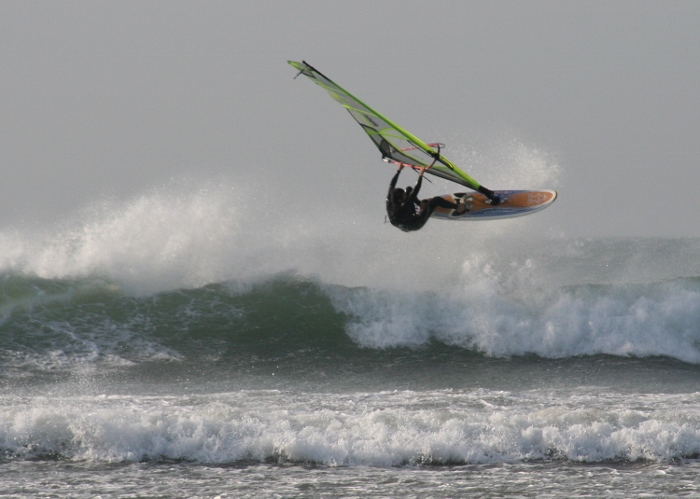
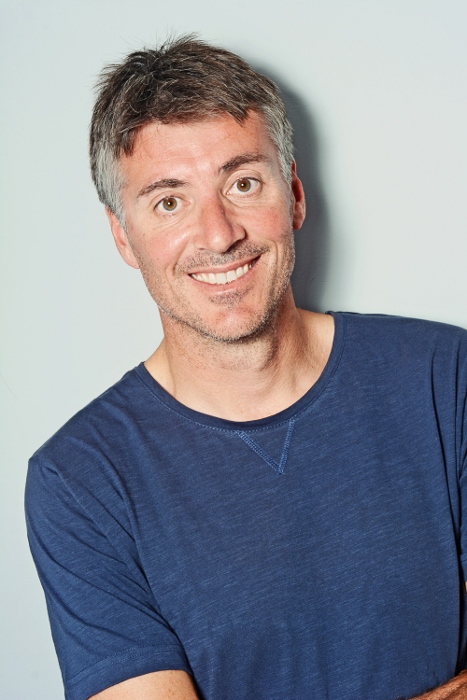
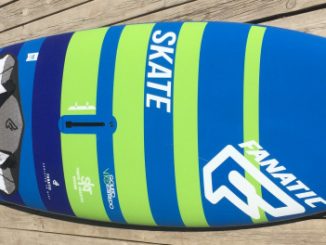
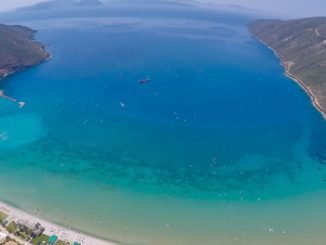
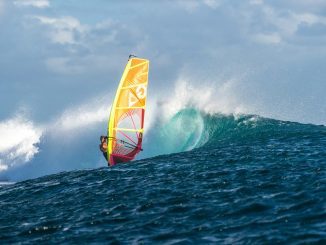
Leave a Reply